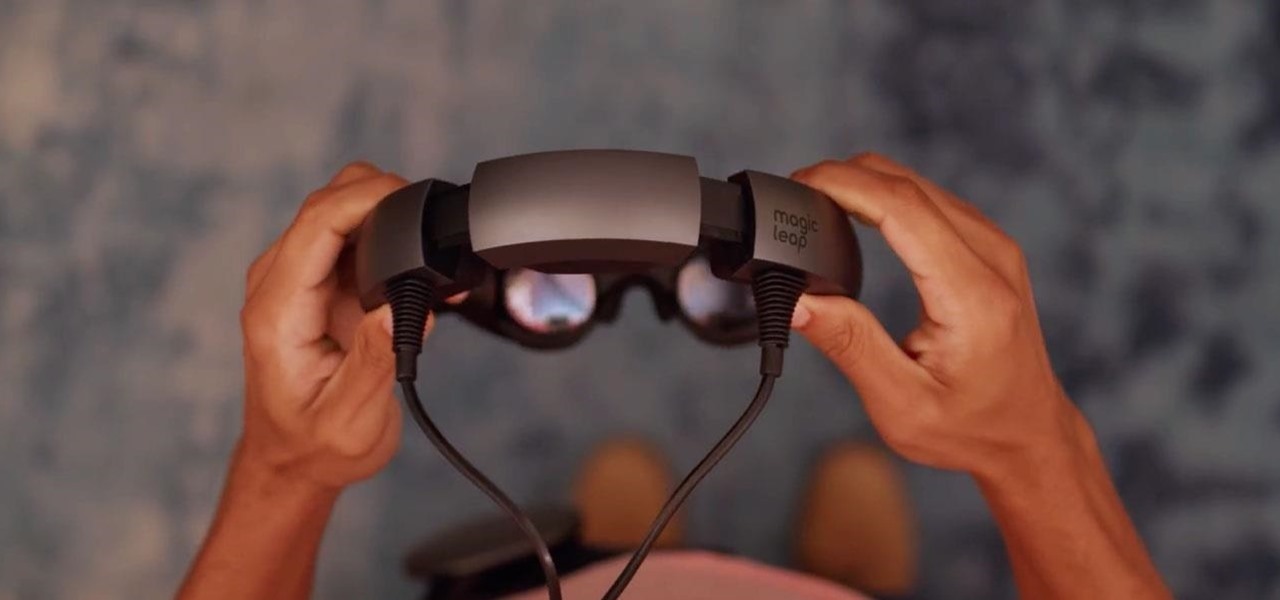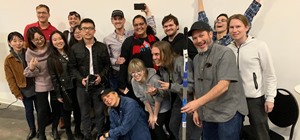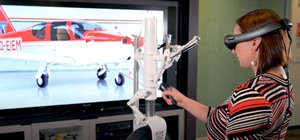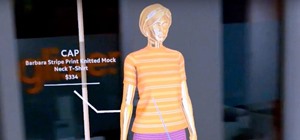On Wednesday, in addition to uploading another batch of videos from its L.E.A.P. conference to its YouTube channel, Magic Leap also launched a new video series for developers called Spacebar.
The new series consists of interviews with developers regarding their insights, experiences, and recommendations for developing with the Magic Leap One. Dan Miller, VR/AR evangelist at Unity Technologies, served as the first guest on Spacebar, with Brian Schwab, Magic Leap's Interaction Lab director, sitting down to interview him.
"Once people started to realize all of the capabilities that were put into the Magic Leap One is when people really started to get excited," said Miller. "There's a lot of stuff going on with handheld AR and those can create some interesting experiences, but people really want that on the head device. They want to be able to walk around, they want to be untethered, they want to be able to use their hands and interact with things like they do kind of in everyday life."
If that four-minute interview doesn't satisfy your need for new Magic Leap knowledge, then the latest quintet of recorded technical sessions from L.E.A.P. should do the trick.
Included in this group of videos are a pair of sessions on Lumin OS. First, the company delivers a walkthrough on how to build a Lumin OS app from scratch, with special attention paid to the Lumin Runtime application framework and the unique features of the operating system.
Magic Leap employees Leonid Zolotarev, senior director of browser/application framework and web platform, Victor Ng-Thow-Hing, principal engineer, Praveen Babu, senior engineering manager, and Lorena Pazmino, lead UX designer, led the session.
Next up, Magic Leap's Blake Taylor, head of graphics, John Cannon, senior creative engineer, and Mike Tucker, technical lead, shared advice from their experiences while developing Tonandi, which was originally built on high-end PCs and had to be optimized for Magic Leap One's GPU to maintain the desired frame rate.
"We were up for a rude awakening when we finally got on Magic Leap One. When we finally saw the performance, there were some scenes that were just terrible," said Tucker. "It was clear that the frame rate was not keeping up with the system, and, in order to have a really good experience on Magic Leap One, it really needs to keep up with 60 Hz."
Another session covers Magic Leap's take on the AR Cloud, or what the company calls Shared Reality. After Karen Stolzenberg, senior interaction designer, introduced the concepts of Shared Reality and Casting, the shared experience service included in Lumin Runtime, Rohit Talwalkar, lead engineer for application development, covered considerations for Casting.
Then, Jehangir Tajik, lead software architect and manager of connected services, discussed environment syncing, while Colman Bryant, lead designer, reviewed some custom use cases.
Last, but not least, Magic Leap's Chris Steinberg, senior software engineer, and Maria Montenegro, senior interaction engineer, offered some insight into the workflows and Magic Leap One features that Magic Leap teams employ internally.
The session concentrates on use cases for Zero Iteration, a development paradigm in ML Remote that reduces build and deploy time and can supply simulated or real-world environmental data for app testing, and Environment Kit, the mesh computing tool built into the Lumin SDK.
To date, Magic Leap has uploaded nearly 13 hours worth of educational sessions and discussion panels from the L.E.A.P. conference to YouTube, along with the three-hours-with-no-bathroom-breaks keynote address.
So if you're looking for something to binge on and learn the best practices of developing AR apps for the Magic Leap One, cozy up with YouTube and a three-liter Mountain Dew.
Alternatively, if you're pressed for time and missed the initial event, you can also check out our own summary of everything important from the keynote.
Just updated your iPhone? You'll find new emoji, enhanced security, podcast transcripts, Apple Cash virtual numbers, and other useful features. There are even new additions hidden within Safari. Find out what's new and changed on your iPhone with the iOS 17.4 update.

























Be the First to Comment
Share Your Thoughts